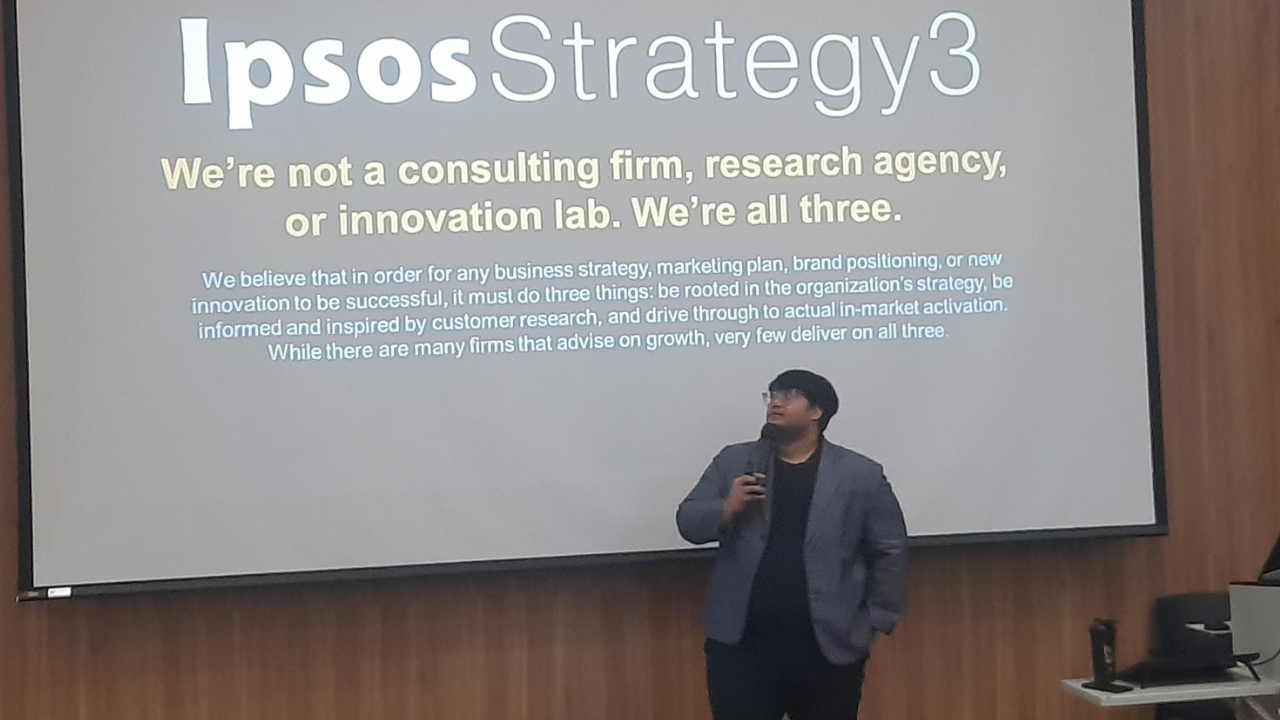In the current digital era, globalization is happening very quickly, helping the development of the global market. Various business activities can take place not only domestically but also internationally.
IPSOS Engagement Manager Irfan Setiawan explained the global market situation when giving a guest lecture on Global Marketing at the SBM ITB (18/9). IPSOS is a global market research and consulting company headquartered in France.
Irfan explained that three main things must be understood in the world of marketing: society, individuals, and markets. IPSOS believes whatever the purpose of its business activities, it is essential to dive into the actual market activities.
IPSOS develops its primary strategy using three perspective lenses. These perspectives include a strategic approach, in-depth research, and a focus on activation.
Some macro forces have a broad impact within a country and across national borders. These macro forces influence society, individuals, and markets.
Irfan then explained how IPSOS was able to understand a country’s market.
The first step is to find and frame it. This step focuses on building the initiative’s foundation, identifying key areas of interest, and aligning goals. This can be done by assessing all existing and applicable research, utilizing market intelligence and external views, conducting secondary research among related and unrelated industries, and conducting face-to-face interviews with stakeholders.
The second step is to uncover the most prominent market insights, drivers, and shifts to address existing gaps through consumer insights.
The third step is to build a strategy by identifying opportunities and key insights and, realizing these insights, then connecting them to business needs.
The final step is to immerse the internal team in insights and activate strategic and tactical planning.
“The key to marketing is to tell customers what they don’t know and are unsure about,” said Irfan.
According to Irfan, to create effective market research, observing and eliminating confirmation bias by questioning facts and the status quo, then creating hypotheses and looking for validation.




